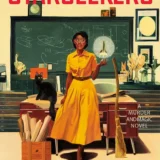Fanzines reviewed: Ecdysis (#5 ), OBIR Magazine (#1), and Swill (#26) .
(Please note: Zine reviews are normally prepared a week or more in advance of publication of this column and may not necessarily include the latest issue available, but the link to multiple issues given at the bottom of each review probably does.)

Ecdysis (#5) – April 2015 – Find it here
Faned: Jonathan Crowe. Canadian Genzine.
Yee gods. This is a perceptive and highly intelligent look at the hidden depths of light topics like Tolkien’s “Silmarillion,” the “problem” of Glorfindel, the “failure” of Peter Jackson, and much else besides. Given how much void exists between my brain cells, I found it tough going at times, but always interesting, occasionally enlivened with quiet humour, and less academic in approach than I initially feared.
Jennifer Hard argues that the “Silmarillion” is a much greater work than the Lord of the Rings trilogy, saying “Tolkien wasn’t trying to write a novel when he wrote the ‘Silmarillion’—so, yes, the stories don’t pretend to follow novelistic conventions. What he was trying to write was a mythology.” And that the “Lord of the Rings” cannot be fully understood or grasped without having first read the ‘Silmarillion’ since “it only fits together because of the legends behind it—the legends that make up the ‘Silmarillion.”
Jennifer cites Galadriel as the perfect illustration of what she means, exploring at length the complexity and difficulties of a character whom Jackson portrayed in his films as simplistic in the extreme (at least by comparison with what Tolkien wrote). Point taken, but largely wasted on me, since “The Lord of the Rings” trilogy made my eyes glaze over, never mind the “Silmarillion” which I’m sure I will never read.
It was with some relief I turned to the article “Tolkien and I” by Tamara Vardomskya which starts off with her confession “I have never really liked ‘The Lord of the Rings.” However, turns out her not liking the trilogy has nothing to do with being too dumb to be anything other than bored (which is my excuse), but because she simply happens to prefer mythologies outside the Northern European traditions underlying Tolkien’s work. Interesting to note she concludes “I do love the ‘Silmarillion, because I feel Tolkien was better at writing myths and sagas than novels…”
It is a fact that I prefer the films to the books. So it was with some trepidation that I read “Peter Jackson Has Ruined Everything” by Jonathan Crowe. And I agree. That’s exactly right. But I still prefer the films to the books. I’m kinda perverse that way. Not anti-intellectual mind you, more un-intellectual. But I am smart enough to understand that Jonathan explains his reasoning clearly and succinctly. Read his article. You’ll find yourself agreeing with him, even if you’d rather not. Trouble is he happens to be right. But still, I prefer the films to the books.
From all the articles on Tolkien’s works (the one on Glorfindel very amusing, as is “Why the Eagles Can’t Carry the Ring”) the quote I found most interesting was Tolkien’s own comment that both the gods and the heroes of Norse mythology are “within time, doomed with their allies to death… we remember that the poet of Beowulf saw clearly: the wages of heroism is death.” Impossible to understand Tolkien’s works without bearing this in mind.
For a change of pace Jonathan Crowe puts forward an argument that the original Trek film, “Star Trek The Motion Picture” was the best of the lot. I remember being disappointed when I saw it in the theatre, figuring that the studio had opted to go “big budget pretentious epic” at the expense of the character and plot elements which had made the TV series so enjoyable.
But, according to Jonathan, “The director, Robert Wise, later described what was released in the theatres as a rough cut. The movie wasn’t really finished in his eyes—and in 2001… he released a director’s edition that reflected what the film would have looked like if he and his crew had had the time to finish it properly.” From the sound of it I gather this version would be well worth tracking down.
Then there’s an interesting article on Somtow Sucharitkul (hadn’t realized music was far more important to him than writing SF), and several other goodies.
Ecdysis worth reading? – Yes, especially if you are a passionate Tolkien fan. A literate yet accessible look at his fantastic creativity.
( Multiple issues of Ecdysis here )

OBIR Magazine (#1) – April 2015 – Find it here
Faned: R. Graeme Cameron. Canadian Review Zine.
What’s the point of having a review column if you don’t review your own zine front and centre? The answer is obvious.
You’ll note I’m reviewing the first issue, which is another way of saying I went crazy again and started yet another fanzine. Bit of a hobby of mine.
So what the heck does “OBIR” stand for anyway? This, too, is obviously obvious. It stands for “Occasional Biased and Ignorant Reviews.” Of what? Of Canadian Speculative fiction. As you know, there’s a crying need for this. At least, a fair number of people have been crying since I published the first issue. Proof I must be on to something.
You see, ever since CSFFA, the administrators of the Aurora Awards (Canada’s Hugos), gave me a mandate to promote the Canadian SF&F genre including professionals as well as fans in the newly revamped CSFFA newsletter “Auroran Lights,” I’ve been doing a lot of reading. Occurred to me to share my opinions on what I read, but I can’t print reviews in AL because it is supposed to be as neutral and inclusive as possible and must avoid any and every impression of bias.
Solution? Put out my own deeply personal and biased, not to say ignorant, collection of reviews on a monthly basis. Hence “OBIR Magazine.” No one responsible but me. No one to blame but me. Ah what giddy heights of ego I scale. A wandering critic I.
One of those vicious critics? Tearing individuals to pieces? Striving to ruin reputations? Careers?
Hell, no. Don’t have the readership to accomplish that anyway. Besides I don’t have academic credentials worth jack. Yes, I have a BFA majoring in Creative Writing, but you’ll notice I’ve never published a short story or even a novel. There must be some reason. Plus, I go out of my way to avoid stepping on slugs, never mind authors. I’m a veritable saint. Wouldn’t want to hurt anybody. Not even a writer.
So, instead of offering criticism based on a work’s level of intrinsic merit, I simply run it up against my personal preferences and see how it fares. Instead of a sliding scale descending from “excellent” down to “rotten,” I use the following rating system:
Invigorating – Really, really exciting. Eye-opening. Dance a jig time.
Great Fun – Thoroughly enjoyed it. Ripping good yarn. Stimulating.
Entertaining – Pleasing. Memorable. A good read. Worthwhile.
Interesting – Something intriguing about it, but not enough to get me excited.
Not to my Taste – Doesn’t appeal to me due to my personal prejudices.
Abysmal – Waste of time for any number of reasons.
Point of truth: I don’t intend to ever rate anything “Abysmal.” If I read something that bad, I won’t review it.
Here is a sample review of a story in the “Fungi” anthology published by Innsmouth Free Press.
“Goatsbride” by Richard Gavin, who lives in Ontario.
Premise: Faithful to the old religion.
At first sight a swansong to pagan beliefs, demeaned and diminished by the new religion, seemingly on the verge of extinction. But those of you familiar with Sir James Frazer’s “The Golden Bough” will know what happens next.
Rating: Entertaining. So much that is written about traditional European paganism reeks of disapproval and anti-pagan propaganda. This story is refreshingly different. It successfully captures the raw power and majesty of ancient perception of the divine from a point of view within said belief system, and I don’t mean a light-hearted New Age approach either. It’s a very visceral blast from the past. The ending, if a trifle ambiguous, is quite impressive.
Contrary to what many moderns believe, the old pagans were not superstitious idiots. There was a breadth of concept which appealed to the imagination, especially on an emotional plane, a vision of sacred wisdom which convinced believers they were in communion with the gods of nature on a very personal level indeed. This story captures that sense magnificently. Nothing disrespectful here.
Not that I advocate the old religion. I’m an atheist. But I do like to see religion, any religion, portrayed in fiction authentic to the actual beliefs of the faithful. Otherwise why bother?
OBIR worth reading? – I like to think so.

Swill (#26) – Winter 2015 – Find it here
Faned: Neil Williams. Canadian Perzine.
In his editorial Neil takes apart the sacred self-serving myth put forward by many genre authors, that science fiction is the literature of ideas. Oh yeah? How can that be? When science fiction is solidly and comfortably middle class in nature (at least, according to Barry Malzberg, says Neil). Said middle class readers are happy to contemplate nifty near future gadgets, but grow uncomfortable when the probable social consequences of future technology made real actually impact economics (usually to disastrous effect, as in mass unemployment).
In other words, entertaining ideas are sought after, but actual extrapolation of current trends, especially technological trends, is to be avoided because it invariably takes away from the gee-whiz aspect of futurism and replaces it with the dire yet inevitable consequences of technological advancement. Not what people want to read. Literature of ideas, yes, but not of implications. Science fiction self-limiting, in other words, if it wants to remain commercially viable. Good point.
Neil follows this with an article showing how much of science fiction depiction of near future society and culture is necessarily bogus and unimaginative compared to what is really going to happen. Again, reality is a lot grimmer than what SF&F authors portray. And there’s nothing we can do about it (in my opinion) except observe what happens when it happens. So I throw in William Gibson’s famous dictum that “the best science fiction is all about today.” We can’t genuinely write about the future because we’re going to be blindsided by viewpoints and priorities which do not yet exist. If contemporary SF survives, it’s going to look damned quaint. So I would argue that modern SF writers can either write thinly disguised warnings about today’s trends, or just make stuff up for the sake of entertainment, knowing that it isn’t plausible in light of what is actually going to happen. So, in fact, it would appear that science fiction isn’t self-limiting by choice, but by its very nature.
Which is why I always cast reality-awareness to the winds when I read science fiction. For me ALL science fiction is a “what-if?” alternate universe. Like-wise history books, or even newspapers and newscasts. We ARE a science fiction universe. An artificial construct. Interpret as you will…
Hmm, possibly I’ve gotten a bit carried away with my chain of thought initiated by Neil’s articles. I blame him. But he’s got some darn good observations…
In his “Pissing on a Pile of Old Amazings” column (the title, I gather, is simply Lester saying he won’t stand for traditional tropes) Lester Rainsford reveals that “Lester is a slow reader, and this makes him prone to thinking about the background and plot. This is never propitious to the enjoyment of the work. Complain, complain, complain–that’s Lester’s lot in SF reading life.”
Seems he gets tired of spotting all the flaws and inconsistencies in 1,100 page novels. He much prefers 3,000 word short stories because “the author can put in a new idea, have a bit of fun with it, and be done. There is no need to come up with the enormous background information that’s needed for a 1,100 page novel, nor any need to worry, over each of those 1,100 pages, that there’s something inconsistent, either with the supposed future, or with the supposed future itself.”
Actually, come to think of it, in the course of his article Lester seems to imply that the authors of 1,100 page novels are intellectually lazy, and the authors of short stories innovative, mentally alert, and stimulating. I’m sure most short story authors would agree.
Also, he wants to remind everyone we are not living in 1954 anymore. Well, he can speak for himself. I’m kinda 1959ish myself.
In “Part 9 of 8 – Three Extra Taboos” Neil looks at the positive aspects of three loathsome and repugnant concepts most readers, let alone authors, prefer to avoid contemplating. The least offensive of the three is “Xenophobia as a species survival mechanism.” In my opinion this may be correct under certain circumstances, but is liable to backfire if you happen to be the weakest of the species involved. At any rate, he has a bit of fun raising the hackles of readers, but then, Swill isn’t exactly famous for its aggressive political correctness.
In his loc column Neil reprints my January 2 review of Swill #25. He points out an error I made (far be it for me to pass it on to you), and then says some very kind things:
“Graeme, thank you for your review and understanding (Lester, in particular, thanks you for noticing how unappreciated he is). What I always like about your commentary is that you actually get the concept of SWILL. And yes, SWILL is most definitely an acquired taste…”
Of course, in this review I may have utterly disillusioned Neil in terms of my profound understanding of Swill, may in fact have bollixed up things considerably, but that’s my style, wreak havoc and move on…
Swill worth reading? – Yes. Swill isn’t shit disturbing for the sake of pitching manure about. Neil and Lester are in to questioning the basic assumptions regarding science fiction that most fans and authors seem to have in common. It is easy to be smug and complacent, but is it worthwhile? Especially when science fiction literature as we know it (or knew it) seems to be inundated under a tsunami of lesser expectations, overly-commercial formula writing, and a growing reader preference for fantasy over SF. In short, science fiction literature is in some danger of dwindling out of existence. That’s a problem, methinks.
So why not question the “basics”? Isn’t it about time science fiction reinvented itself? Looking at from different angles, especially from angles totally alien to the three-dimensional universe we’re used to, could well prove useful in rethinking and rehabilitating our beloved genre. Swill forces us to re-examine our values, our views, and our voles. (Well, maybe not our voles.)
Do I have any idea what I’m talking about? No. Of course not. If I did, I’d be a best-selling SF novelist wouldn’t I?
Point is, I always get a kick out of reading Swill. It may not be to your taste, but I find it leads me to question mine. Keeps me thinking, it does.
( Multiple issues of Swill here )
BY THE WAY:
You can find a fantastic collection of zines at: Efanzines
You can find yet more zines at: Fanac Fan History Project
You can find a quite good selection of Canadian zines at: Canadian SF Fanzine Archive

 Fanzines reviewed: Ecdysis (#5 ), OBIR Magazine (#1), and Swill (#26) .
Fanzines reviewed: Ecdysis (#5 ), OBIR Magazine (#1), and Swill (#26) .






